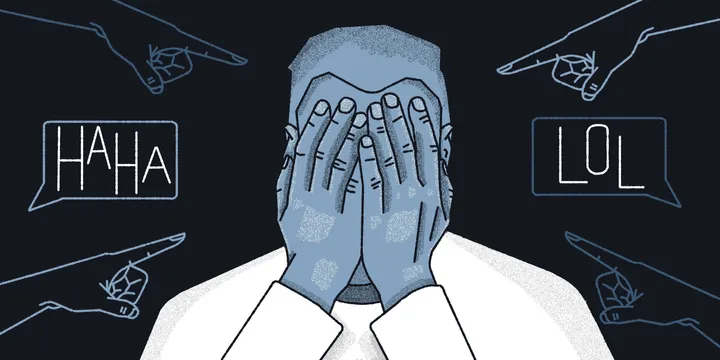The consequences of mental health stigma are widespread. It makes mental illness seem like a character flaw, which is completely untrue, and prevents people from seeking support that can help them manage their condition.
The worst part? People contribute much more to this shame than they think.
Most well-intentioned people would not intentionally act in a way that shows compassion for the millions of people who suffer from mental health disorders. But there are still some everyday behaviors that create negative stereotypes. Here are some things you should be aware of, experts say.
Casually throwing around terms like “depressed” or “OCD”
Of course, it’s sad when your favorite TV show goes off the air. If you like to organize things a certain way, you may come off as eccentric. But saying these things make you “depressed” or “OCD” is wrong—and trivializes real mental health conditions.
Language awareness is crucial and we are all guilty of imprecision or exaggeration at times, but it is important to avoid misuse of language.
Blaming mental illness for every mass shooting
Making overly simplistic links between mental health and mass shootings sends inaccurate messages about mental health disorders.
People with mental illness are more likely to be victims of violent crime than perpetrators. According to a 2015 study, less than 5% of gun-related killings are committed by people diagnosed with mental illness.
Referring to someone as “psycho” or “crazy”
People often use phrases like this to insult someone they think has done something wrong. But this pejorative term further perpetuates the inaccurate notion that people with mental illness should feel shame or fear.
People display mental health stigma by making inappropriate comments about the mind-destroying illness. They often think these off-the-cuff remarks are harmless, but the reality is that they hurt people with mental illness and their families and increase misunderstandings about the illness. We see this happening all the time in politics, sports, and even children.
Labeling someone based on their illness
Think of it this way: You wouldn’t refer to someone with cancer as a “cancer patient.” The same rules apply to people with mental health issues.
One of the most common mishaps is the avoidance of person-centered language, such as when people use terms like “schizophrenia” or “borderline” instead of “schizophrenic” or “borderline personality disorder.” The preceding terms are insulting because they reduce an entire person to a diagnostic label.
Judging or teasing someone displaying abnormal behavior
We see this a lot when people talk about celebrities. It’s often considered newsworthy when celebrities “act badly” on social media or in real life, but this behavior may be indicative of mental health issues.
Take former NBA player Delonte West as an example. In 2016, a fan saw West walking out of a Houston fast food restaurant without shoes and documented the encounter on social media. Commenters were quick to joke and make assumptions about West’s mental state, which can send a message to anyone experiencing mental health issues that their illness is humorous or unworthy of sympathy.
People reacted the same way when news broke that former NFL player Aaron Hernandez had committed suicide in prison, where he was serving a life sentence for murder. People mocked Hernandez’s death on social media, turning a very real mental health issue into a punchline by sharing memes and crude comments about suicide.




